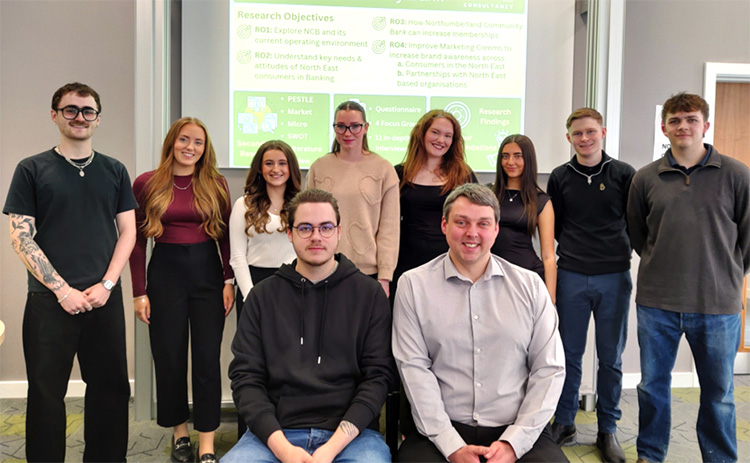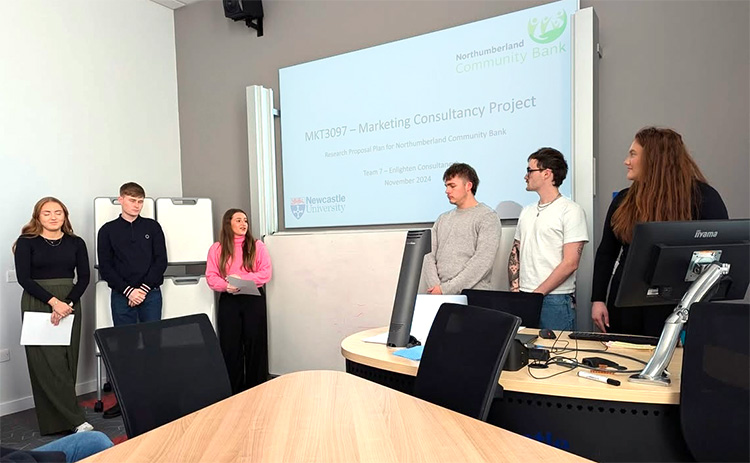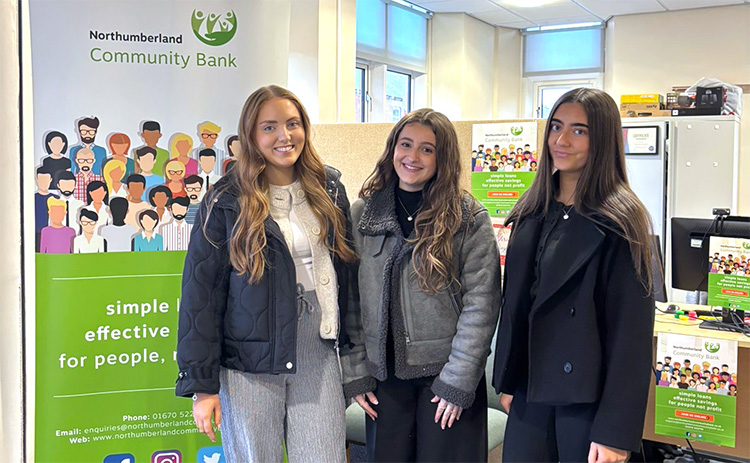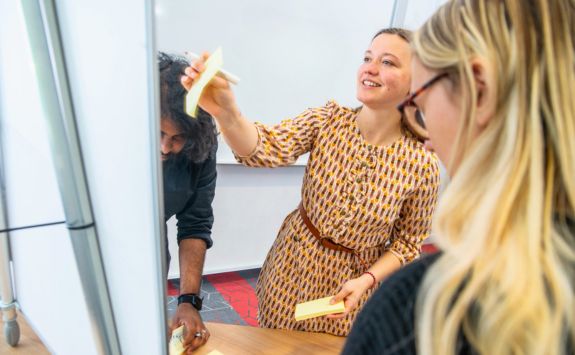Case Study: Northumberland Community Bank
See how students helped a not-for-profit bank strengthen its marketing strategy. This case study highlights the value of fresh insight, creative thinking, and real-world consultancy experience.
The challenge
NCB is a growing organisation with deep roots in the community. They were looking for fresh perspectives to help:
- build brand awareness
- attract new members
- improve engagement with both existing and potential customers
The student team was tasked with:
- analysing current marketing efforts
- identifying opportunities for growth
- developing practical, cost-effective recommendations tailored to NCB’s goals
The approach
Final-year marketing student Ella Malcolm led the consultancy team. They began by engaging with stakeholders at NCB to understand the organisation’s mission, challenges, and objectives. The students conducted primary and secondary research to build a deep understanding of the market landscape. This included:
- branch visits
- staff interviews
- competitor analysis
The team applied marketing theory to practice. They explored digital engagement strategies, localised outreach, and community-based campaigns. They held regular meetings with NCB and academic supervisors. This ensured that feedback was incorporated, and ideas were refined throughout the process.
The outcome
The project culminated in a detailed marketing strategy report. The students delivered a final presentation to NCB’s leadership team. They made immediately actionable recommendations that were aligned with the organisation’s long-term vision.
Northumberland Community Bank were impressed by the quality, creativity, and professionalism of the students’ work.
Scott Wilson-Laing, CEO of NCB, said: “Most of what the students produced and a lot of the findings they’ve brought to us are more than deployable, which we’ll probably do over the next three to six months.”
The marketing consultancy project offered NCB a fresh, external perspective. It allowed them to gain insights that may be overlooked in the day-to-day of running the business. Scott added, “Sometimes you end up in a silo – this project allowed us to have research and recommendations from an outside person looking in.”
The experience offered students a unique insight into real-world consultancy, allowing them to:
- develop leadership and teamwork skills in a client-facing setting
- translate academic marketing theory into practical, results-oriented solutions
- enhance communication, time management, and strategic thinking
- build confidence through professional presentations and stakeholder engagement
Student Ella Malcolm said, “The marketing consultancy project was an extremely valuable experience. It pushed us out of our comfort zone and gave us a better understanding of what a career in marketing consultancy could look like. I’m really proud of what our team has achieved.”


The project supported us in two main facets: helping us develop a more structured marketing plan, and supporting our organisational goal of developing talent – internally and externally.
In 2024/2025, the Marketing Consultancy Project module hosted 11 different businesses. They came from a range of sectors across the region. Each client organisation collaborated with a group of students. They researched their marketing challenge over the course of six months. At the end of the project, clients received:
- an 8,000-word report
- an extensive research portfolio
- a presentation of their research-informed recommendations
“These consultancy projects deliver new transferable skills to our Marketing students. They allow them to apply their theoretical learning to a real-life project. But, more importantly, it helps bridge the gap between their academic studies and real-life marketing, plus gives local organisations fresh ideas and the latest marketing insights” - Fiona Thompson, Senior Lecturer in Marketing

